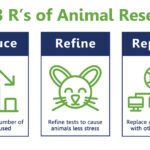In an increasingly civilized world, the thought of animal cruelty remains a tragic reality that continues to plague many societies. The question arises— which country holds the notorious title of having the most egregious acts of animal cruelty? This article delves into some of the top offenders globally, providing a scrutinizing look at the conditions and practices that lead to abhorrent treatment of our fellow earthlings.
To explore this sensitive subject, we must first understand the various definitions and manifestations of animal cruelty. It encompasses a range of despicable acts— from neglect and abandonment to outright torture and exploitation for entertainment or profit. When delineating the countries where animal cruelty flourishes, it is crucial to consider not only the frequency of incidents but also the legal framework surrounding animal rights and how cultural attitudes influence humane treatment.
As we traverse this landscape, let’s take a moment to ponder: If countless voiceless beings suffer in silence, what responsibility do we hold to challenge these social norms? Addressing animal cruelty is not merely a matter of legislation or enforcement; it involves an ongoing dialogue about ethics, empathy, and our collective humanity.
In examining the landscape of animal cruelty, nations such as China, Mexico, and the United States emerge as flag-bearers of this abominable reality. In China, the Yulin Dog Meat Festival epitomizes the abhorrent treatment of animals for culinary practices that many worldwide consider inhumane. Every summer, thousands of dogs are brutally slaughtered, often in the most horrific manners, under the guise of cultural traditions. While some Chinese citizens voice dissent and call for reform, the sheer scale of the event raises profound questions about society’s moral compass.
On the other hand, in countries like Mexico, a juxtaposition of rich cultural heritage and deeply ingrained traditions leads to animal suffering through practices like bullfighting and dog fighting. These age-old rituals not only showcase a blatant disregard for animal welfare but also perpetuate a cycle of violence and insensitivity towards non-human creatures. Advocates have voiced their concerns, and protests against these events are slowly gaining traction; however, the road to significant change demands persistent effort.
The United States, although often portrayed as a champion of animal rights through organizations such as the ASPCA and numerous state laws, still grapples with significant issues regarding animal cruelty. With heart-wrenching statistics demonstrating millions of animals abandoned each year, the plight of neglect and abuse resonates across the nation. Moreover, practices such as factory farming, where animals are subjected to inhumane living conditions, propagate systemic cruelty. It is a stark reminder that even in nations where animal welfare advocates are vociferous, a dark underbelly of cruelty persists.
It is essential to recognize that regional animal cruelty levels are influenced significantly by existing laws and their enforcement. Countries such as Sweden and Germany are often lauded for their progressive animal welfare standards, boasting stringent regulations that protect animals from abuse. In contrast, many countries lack the legal framework necessary to deter cruelty effectively. Strikingly, some nations merely view animals as commodities rather than sentient beings deserving compassion and respect. This highlights a critical contradiction: while advocates tirelessly campaign for animal rights, those who perpetuate cruelty often operate within legal loopholes and social tolerances.
However, amid these grim realities, a burgeoning movement enunciates change— individuals and organizations worldwide are rallying against cruelty. Whether through social media campaigns, community outreach, or legislative advocacy, a collective voice against animal abuse is steadily rising. Petitions are circulated, raising awareness about the significance of humane treatment and advocating for tougher penalties for violators. This change emerges from a recognition that animal suffering is a moral crisis that can no longer be ignored.
Furthermore, education plays a pivotal role in combating animal cruelty. Initiatives aimed at teaching kindness and empathy towards animals in schools, as well as community seminars and workshops, can help propagate a culture of compassion. The more we can instill values that honor and respect animal life, the more we diminish the likelihood of cruelty. Making ethical choices as consumers— whether through meat consumption or supporting humane products— fosters a culture of accountability that can shape societal norms.
Ultimately, as we challenge ourselves to confront the uncomfortable truth of animal cruelty, we must ask: What can we do to alleviate this suffering? Not only can we support policies that protect animals, but we can also engage in acts of kindness in our daily lives— adopting pets, supporting local shelters, and speaking out against cruelty in all its forms. The urgency for change demands an unwavering commitment, and it is within our power to catalyze impact.
The battle against animal cruelty is formidable, but the resilience of those advocating for animal rights is equally profound. Therein lies a potential challenge for every individual: to shift perceptions and advocate for a world where animals are treated not as property or mere resources but as lives deserving of dignity and respect. It is time for all of us to be a part of this movement, creating ripples of awareness and compassionate change. Together, let us forge a future where cruelty is but a distant memory, and kindness reigns supreme.





